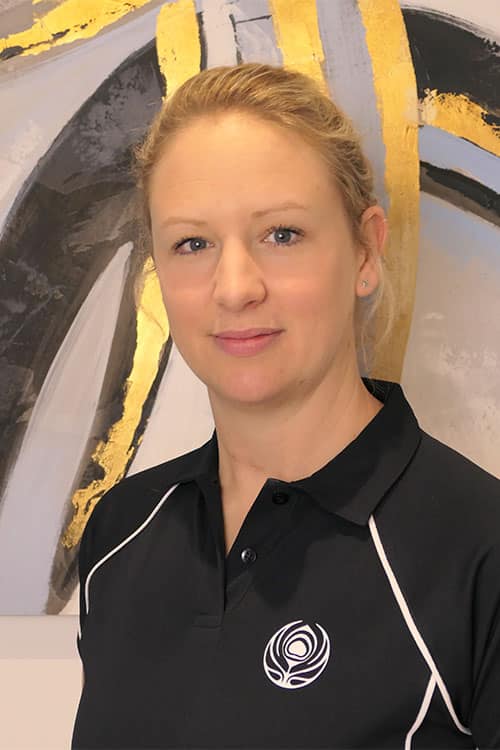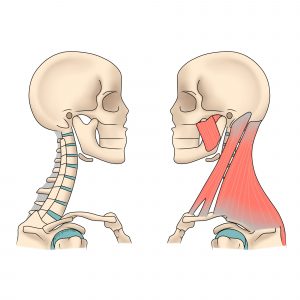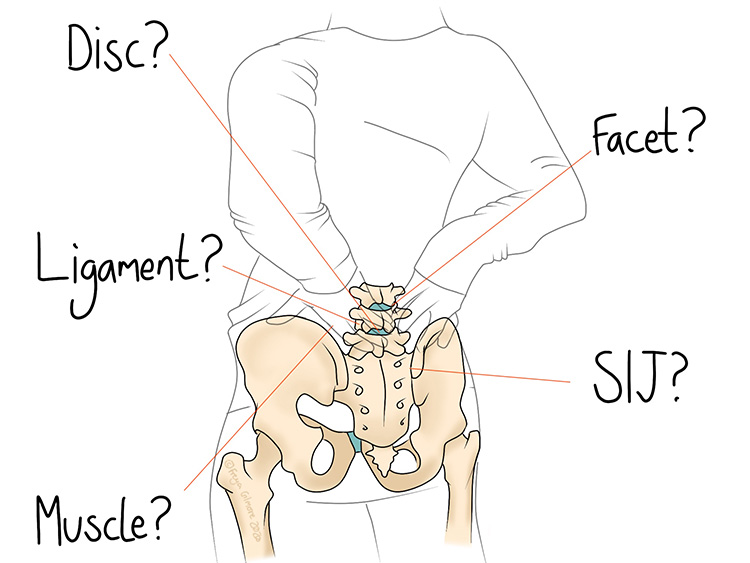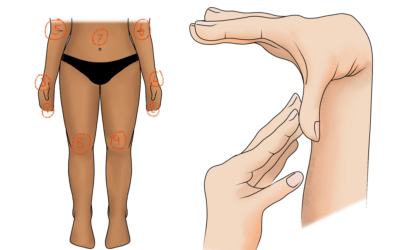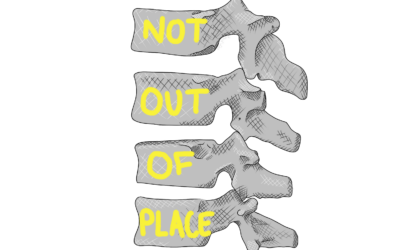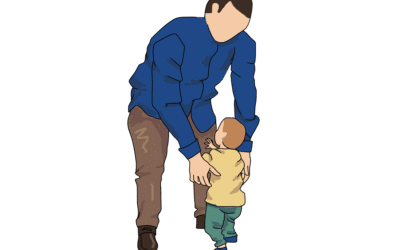Your osteopath is qualified to diagnose and treat your lower back pain- provided it is “non-specific”.
Non-Specific Lower Back Pain
This strange term refers to the cause of the pain rather than the symptoms. NSLBP is within your osteopath’s remit, whereas other conditions need further intervention, for which we can refer you on. NSLBP excludes the following causes:
- fracture (including osteoporosis)
- malignancy
- infection
- inflammatory conditions
- structural deformity
- cauda equina syndrome (an emergency condition affecting leg sensation and bowel or bladder function)
NSLBP also excludes sciatica, however, this is also within our remit.
Soft Tissue Injuries
Within the umbrella of NSLBP, there are a number of possible soft tissue problems. Most cases of lower back pain will be accompanied by some degree of muscular involvement. Often this is just some tightness as the brain sends a message to protect the local area by restricting movement. Other times, the cause of pain may be a muscular problem, like a strain.
Another soft tissue that could be a cause of your pain is a ligament. The joints between each bone of the spine have a number of ligaments. These can be sprained just like any other. Further down the back is the sacroiliac joint: the large joint between the spine and pelvis. This joint has a number of large ligaments to stabilise it. During pregnancy, these ligaments become more lax and can lead to pain. Ligaments are slow to heal, so your osteopath may want to work elsewhere in the body to take the strain off the affected ligament. It may also be useful to strengthen the muscles around the injury.
Finally, we also have intervertebral discs. These are the soft cushions of cartilage that sit between the bodies of the vertebrae. They have soft centres, which support the movement we require of our spines. Although they technically cannot slip- they are very securely attached to the bones above and below- they can cause pain. The outer layer of cartilage can be irritated or weakened by injury. Sometimes this leads to a predisposition to developing a bulging disc. At this point, in the right conditions, the soft inside of the disc can push against the weakened cartilage. These conditions could be a small movement such as bending forwards to put on a sock.
This is not to say that you should avoid all movement. Bulging discs are not always symptomatic: most of the population over 40 has a bulging disc, but only a fraction of them are in pain. Your osteopath can give you personalised advice to manage your disc bulge.
Joint Problems
Some joint pains in the back are transient. These can be the result of an irritated spinal joint. When irritated, they may cause stiffness, or pain that is either local to the joint or follows a recognisable pattern. This means that you may have pain in a limb or around the ribs that is simply the result of a small joint. Your osteopath can identify this and treat accordingly. This kind of joint irritation can respond very well to manipulation or “clicking” when appropriate.
Osteoarthritis presents longer-term joint pain. It may develop slowly over a long period and cause a dull and continuous ache. Over time, it can also cause you to compensate for it, leading to aches and pains in other areas of the body. Fortunately, your osteopath can help. Osteoarthritis is a sign of poor cartilage health, and cartilage likes movement. By encouraging your spinal joints to move as well as possible, we may be able to help manage the symptoms of your arthritis.
If you have discomfort in your lower back, make an appointment with us today.

